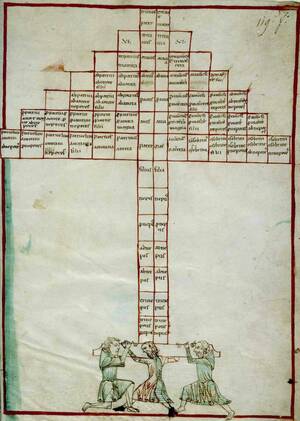Religion & Pluralism in the Medieval Mediterranean Working Group: Dr. Jose Andres Porras (University of Oxford), "Loving Family and Neighbour: The Untapped Potential of Natural Love for Medieval (Religious) Tolerance"

Please join us for the first meeting of the Religion & Pluralism in the Medieval Mediterranean working group this term. Jose Maria Andres Porras (Lecturer in Medieval History, Wadham College, University of Oxford) will be giving a talk titled "Loving Family and Neighbour: The Untapped Potential of Natural Love for Medieval (Religious) Tolerance."
Dr. Andres Porras has provided the following abstract for his talk:
From the mid-thirteenth century, medieval scholars drew upon book VIII of Aristotle’s Ethics to develop theories of natural love, namely the belief that an affective inclination arises between individuals and groups with shared biological ancestry. This belief bears striking resemblances with modern-day sociobiological thought which posits genealogical relatedness as a fundamental factor in altruistic behaviour. Theories of natural love helped rationalise the instinct to love one’s nearest and dearest as well as harmonise it with the command to love one’s neighbour. This lecture will explore the development and diffusion of such theories. It will also show how the belief in common descent from Adam and Eve enabled medieval thinkers to extend the operation of natural love to members of other religious communities. In so doing, I will argue that the organic quality that forms of human association took on in medieval thought had the potential to uphold difference alongside inclusiveness, reciprocity, and mutual respect.
Dr. Andres Porras works on the intellectual, cultural, and social history of Western Europe in the late Middle Ages. His research explores how natural philosophy, medicine, theology, and political thought shaped conceptions of human personhood and society. He is concerned with how ideas in these different fields of knowledge interacted with each other, and how intellectual debates informed and were stimulated by social changes and practices.
Please contact Francisco Cintron Mattei if you have any questions about this event.